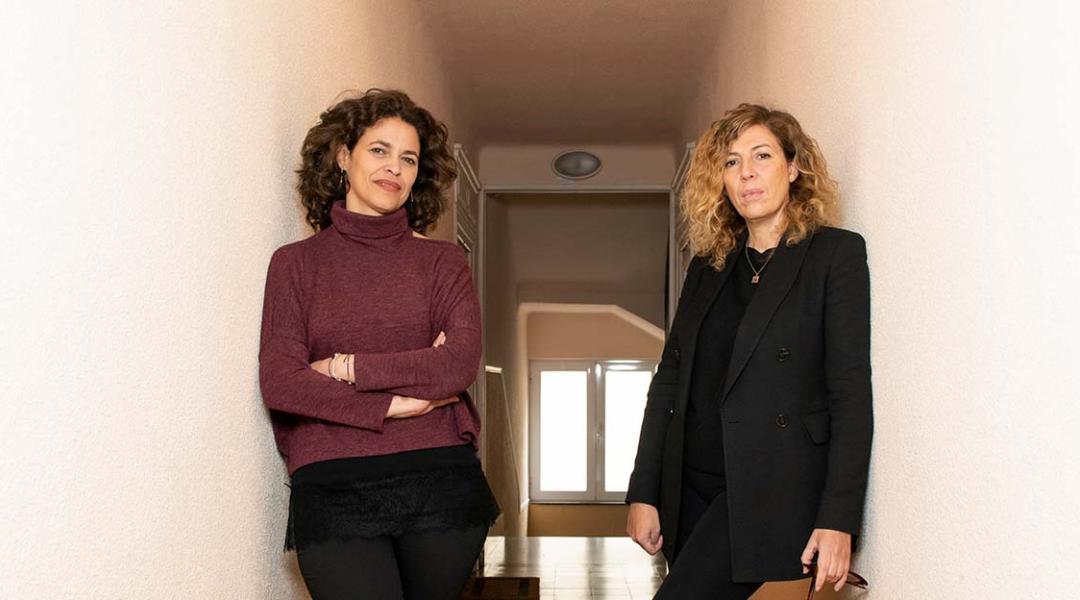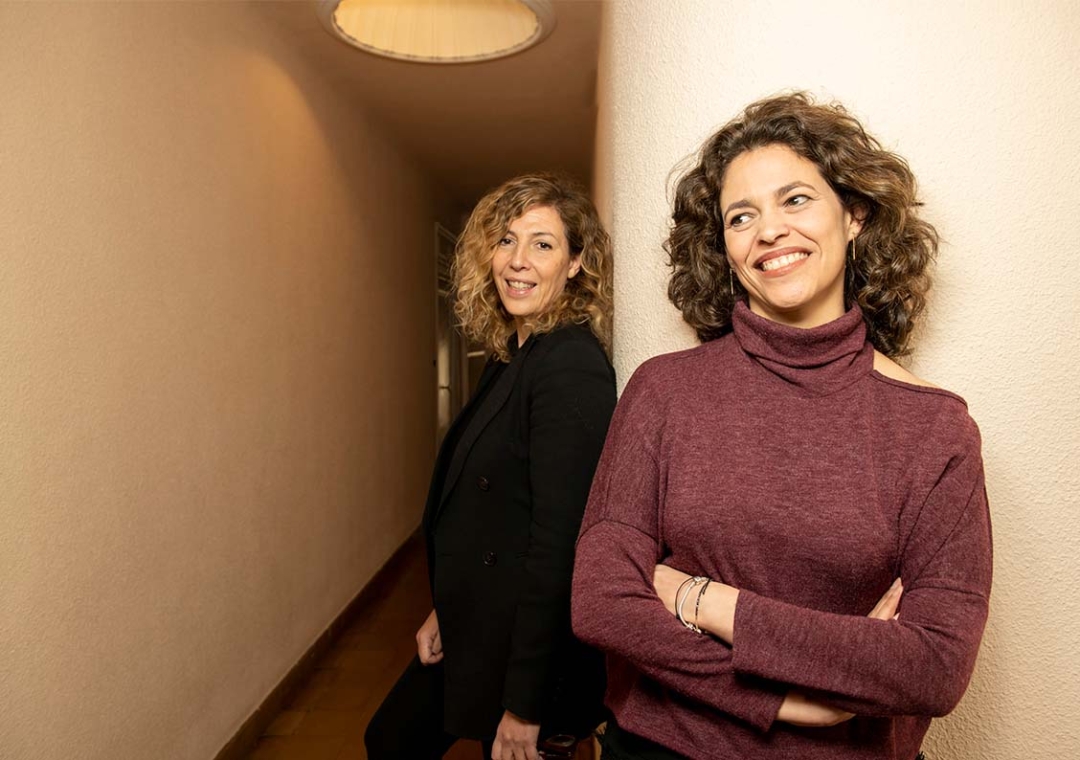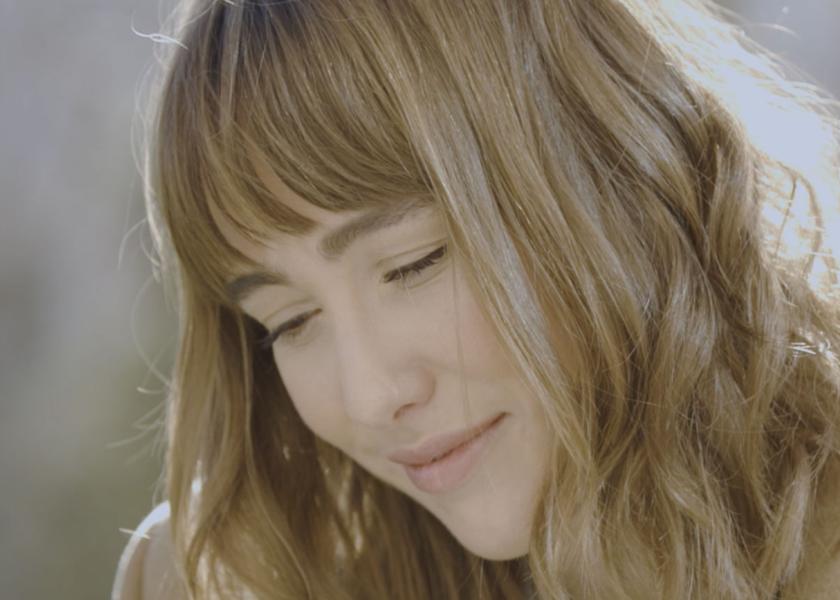Yolanda Serrano and Eva Leira
Discovering stars

Spanish cinema would have different gazes, different gestures, and different voices if it weren’t for them. We chat to Yolanda Serrano and Eva Leira, the casting directors who, thanks to their eye for talent, have been turning young strangers into stars for a couple of decades. A job that is unknown to the general public and that still doesn’t receive the recognition it deserves from the industry.
It’s unlikely that the names Yolanda Serrano and Eva Leira sound familiar, but, without them, the faces of Spanish cinema would be completely different. They’re the casting directors of films like Cell 211, Spanish Affair, Marshland, Palm Trees in the Snow, or Pain and Glory, and series such as Física o Química, Veneno, Money Heist, Patria, or Elite. Next to nothing. When we ask them how they feel about this, they don’t hesitate: “Proud, but for us the most important thing is to carry on collaborating with the wonderful directors we’ve worked with, as well as new ones. There’s plenty of young talent.” Despite almost twenty years in the field, Yolanda and Eva haven’t lost an ounce of enthusiasm.
This enthusiasm is essential to do their job, unknown by the general public. “Many people think that it consists of placing an ad, seeing four actors, and choosing one, and it’s nothing like that. It’s a meticulous job, you’re like a truffle hunter, and they’re extremely long processes because we have to be sure that those chosen will be capable of playing the part.” There are no simple castings, or at least they haven’t experienced them. Perhaps because they admit taking each one as a leap of faith. “Over time, you become more precise, but we always feel the same dizziness: it’s like being on the brink of an abyss and jumping without a safety net.” This is how they describe the casting of Veneno, for example.
“Castings are extremely long processes because we have to be sure that those chosen will be capable of playing the part”
Their work on Veneno, a series starring trans women that has travelled around the world, can be considered a feat. Regarding this, we ask them about the scarce recognition that casting directors have within the sector. “This fight for recognition has been ongoing for some time in Hollywood, and if they can’t get it there, imagine here. The best recognition is the trust great directors continue to place in us, and that of our parents and children who have put up with so many long hours of work.” At this stage in the game, they’re like an artistic duo, “the blonde and the brunette”, to the point where many only recognise them if they’re together, they confess laughing.
From film to TV
From Veneno, one of their latest works, we move onto Yolanda and Eva’s “once upon a time”: The Weakness of the Bolshevik. A film that brought them together and meant finding María Valverde, winner of the Goya Award for Best New Actress, after traipsing around dozens of schools and high schools. “If we, as the audience, didn’t feel what Tosar’s character felt, there was no film. We were looking for a girl who’d turn around and captivate the entire cinema.” Yolanda admits that she was instantly attracted to the “passion” Eva worked with, and when, shortly after finishing filming, Eva called her to make another film, she didn’t hesitate: “Where do I sign up?”, she replied. And that was the beginning of a professional relationship that has never stopped reaping successes. “We’ve never taken a break in all these years; we’ve worked on one film after another.”
And not just films, also series. Because not long after The Weakness of the Bolshevik, Yolanda and Eva landed on TV. “We were lucky that our first series was Física o Química, which, in turn, was the first series about teenagers with actors who were the same age as the characters.” Another milestone. “The day Física o Química premièred, the kids came to see us and were perfect strangers. They came back the following week and people were already stopping them on the street.” They admit that they bought Súper Pop magazine to check if they’d done a good job: if the actors were on the front cover, the answer was yes.

María Valverde, Quim Gutiérrez, or Dani Rovira are only some of the stars discovered by Eva Leira (left) and Yolanda Serrano (right). @Alfredo Arias
San Bernardo, 5. Madrid. Most current Spanish film stars have crossed this threshold at some point or another. Because Yolanda and Eva still work in the same way and in the same place, although this means each candidate must flee through the terrace to avoid bumping into the next one. Other times, they’ve had to leave their office in search of the character that the script required. “A casting is an immersion, and many times the actor you’re looking for isn’t going to come to the centre of Madrid, you have to go and find them.” But, before all that, how does a casting process start? “We read the script separately and, the next day, we brainstorm together. Sometimes names come to you, and other times, nothing, so you have to start searching.”
“A casting is an immersion, and many times the actor you’re looking for isn’t going to come to the centre of Madrid, you have to go and find them”
Search, a term that, in the case of Eva and Yolanda, is full of meaning. “In the actor, we search for something profound that the character has. It has a lot to do with love, that feeling that someone conveys even if it’s not exactly what you’re looking for. It’s very intuitive.” When they choose their characters, they go beyond physical appearance; maybe this is where their secret lies. “For us, a prototype is the girl that walks into a party and all eyes are on her. This is a concept and doesn’t mean that she’s blonde, or brunette, or the prettiest girl. Or the friend who never ends the night well, or the person you know will always help you... We work on the characters from this perspective and not so much on physical appearance.”
The music of talent
If one thing is clear is that Yolanda and Eva have an eye for talent. So, we ask them to define it. “Talent emerges when someone can make the most of their own music, something that’s unique to them, and distinguishes them from the rest. Sometimes people aren’t aware of their talent, and you have to orchestrate that music from outside, and other times they are, and therefore their music loses a bit of magic. It’s related to honesty and that magical component.” And where can talent be found? “Everywhere... Right now, it can be on Instagram or TikTok and we have to adapt to these new formats.” But they warn: “Followers on social media come with success, not the other way around.”
“Talent emerges when someone can make the most of their own music, something that’s unique to them, and distinguishes them from the rest”
Yolanda and Eva work with extremely delicate raw materials. Therefore, they show real empathy: “We work with the generosity of actors and actresses who come here and give their all. Professionals expose themselves equally or more so than amateurs. Often an amateur isn’t aware of what they’re up against, or what they can lose, and isn’t under the same pressure as a professional who wants to play a certain role or work with a certain director.” And they show their directors the same empathy: “Little is said about how much they suffer and how much they put themselves on the line... Which is why we try to figure out how to help them.” After two decades searching, when Yolanda and Eva can’t find the character they’re looking for, they make an appeal: “We deserve some luck.” And, indeed, they do deserve it.


